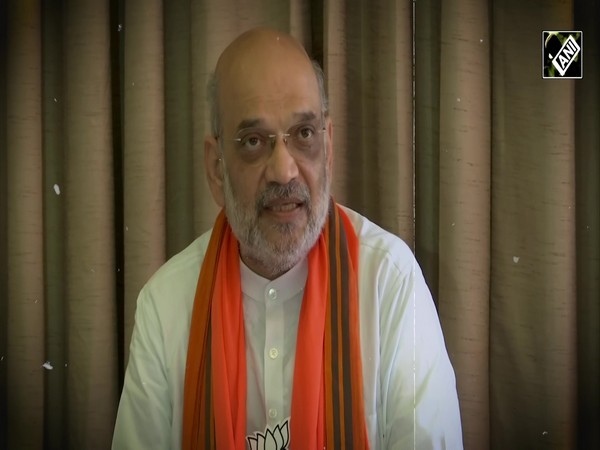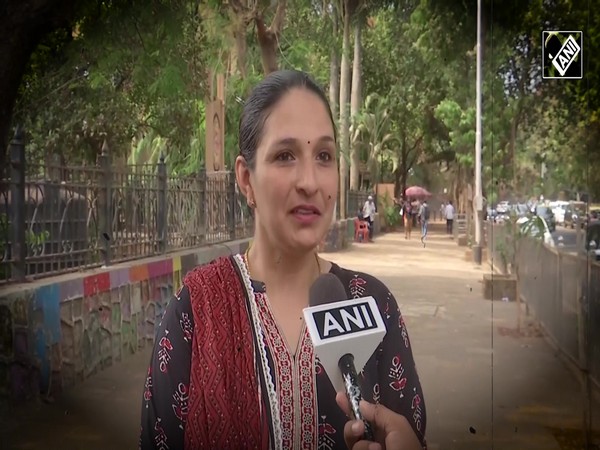12 cheetahs begin their journey from South Africa, to reach India tomorrow
Feb 17, 2023

New Delhi [India], February 17 : The 12 cheetahs, including seven males and five females, have started their journey from South Africa and are set to arrive in India on Saturday, informed Union Minister Bhupender Yadav.
The Indian Air Force's C-17 Globemaster Cargo plane is bringing the 12 cheetahs from South Africa. The Cheetahs will be translocated to Kuno National Park in Madhya Pradesh.
Cheetahs from South Africa will arrive tomorrow in Madhya Pradesh's Kuno National Park after South Africa last month signed a Memorandum of Understanding (MoU) on cooperation in the re-introduction of Cheetahs in India to establish a viable cheetah population in the Asian country.
"The 12 cheetahs arriving from South Africa, under the visionary leadership of PM Narendra Modi ji to restore our ecological balance, have begun their journey to India. Indian Air Force's C-17 Globemaster aircraft will get them home tomorrow. Get ready to welcome them," tweeted Yadav.
https://twitter.com/byadavbjp/status/1626535864389206017
Earlier, eight cheetahs brought from Namibia were released by Prime Minister Narendra Modi at Kuno National Park on the occasion of his birthday on September 17, 2022. The big cat returned to India 71 years after the last recorded cheetah was hunted down in Chhattisgarh in 1952.
The Cheetah Project Chief of India SP Yadav on Friday said that arrangements are in place at Madhya Pradesh's Kuno National Park for 12 African Cheetah being brought from South Africa to ensure that the big cats do not face any kind of disturbance.
"Close cameras have been installed and the big cats have been fitted with radio collars for live tracking. The quarantine enclosure we have made this time is better than the previous one," SP Yadav said while speaking to ANI.
SP Yadav said that after bringing Cheetahs to Kuno National Park from South Africa all of their health will be tested and then they will be kept in quarantine for a month. For this 10 quarantine boomers have been made which will be kept. Two Cheetahs each stay in two enclosures and the rest of the other cheetahs will be kept in separate quarantine boomers.
"The C-17 Globemaster Cargo plane of the Indian Air Force is expected to land at Gwalior Airport at 10:00 am on the 18th February. This distance will be covered in almost 10 hours. The Indian Air Force aircraft left Ghaziabad Hindon Airport on Feb 16 at 6.00 am and reached there at 12:30 according to the time of South Africa" Yadav told ANI.
Cheetah Project Chief further told ANI that the Indian Air Force cargo plane has 11 crew members who belong to the IAF, apart from this, as an advance party, our IG, DIG from the National Tiger Conservation Authority, Veterinary Doctor, Custom Officer have also been sent so that on arrival here There should not be any inconvenience in custom. Cheetah experts from South Africa will also fly in a plane with those who will come to Gwalior.
Asking about the differences between Namibian Cheetah and South African Cheetah, Yadav told ANI that there is no difference in species between the cheetahs of Namibia and South Africa, but they are completely wild cheetahs of South Africa, whose character is wild.
Radio collars have been installed in all the cheetahs and monitored through satellite. Apart from this, a dedicated monitoring team behind each cheetah keeps monitoring the location for 24 hours.
The main reasons for the decline of cheetahs in India were large-scale capture of animals from the wild for coursing, bounty and sport hunting, extensive habitat conversion along with a consequent decline in prey base and in 1952 Cheetahs were declared as extinct.
The goal of the Cheetah introduction project in India is to establish viable cheetah metapopulation in India that allows the cheetah to perform its functional role as a top predator and provide space for the expansion of the cheetah within its historic range thereby contributing to its global conservation efforts.
The major objectives of the introduction project are to establish breeding cheetah populations in safe habitats across its historic range and manage them as a metapopulation.
Under the ambitious project of the Indian Government-Project Cheetah- the reintroduction of wild species particularly cheetahs is being undertaken as per the International Union for Conservation of Nature (IUCN) guidelines.
India has a long history of wildlife conservation. One of the most successful wildlife conservation ventures 'Project Tiger' which was initiated way back in 1972, has not only contributed to the conservation of tigers but also to the entire ecosystem.
In 1947-48, the last three cheetahs were hunted by the Maharaja of Korea in Chhattisgarh and the last cheetah was seen at the same time. In 1952 the Government of India declared Cheetahs extinct and since then Modi government has restored cheetahs after almost 75 years.


















